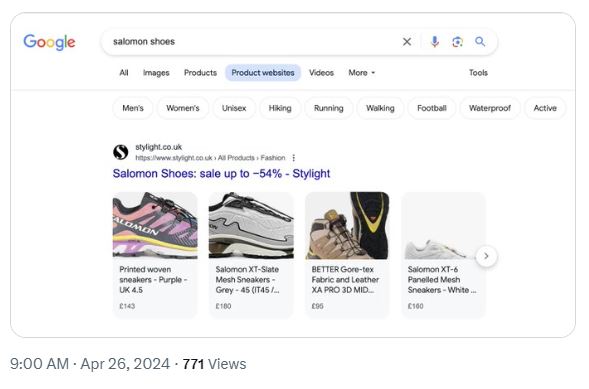Lately, more and more people have realized that when they search on Google, what they see first are mostly ads. It’s like the balance has shifted from showing mostly regular, useful stuff to bombarding us with ads. This change has caused a lot of people to feel worried and annoyed. It used to be mostly just regular stuff popping up, but now it feels like you’re swimming through a sea of ads just to find what you’re looking for.
Purpose of Ads in Search Results
The primary purpose of advertisements in search results is to generate revenue for the search engine provider. While ads can be useful in connecting users with relevant products and services, the balance between commercial interests and user needs is delicate and often contentious.
Google’s Use of Excessive Ads
Intentional Placement of Ads to Encourage Clicks
Google strategically places ads within its search results to maximize clicks. These placements often blend in with organic results, making it challenging for users to distinguish between them. This tactic not only boosts ad revenue but also increases user interaction with sponsored content.
In the search results, Google is currently testing adding “product sites” as a separate tab. And Google is also running a test to replace the word “shopping” in the search bar with “Products.”
This was noticed and posted by Shameem Adhikarath; here is the video,
Brodie Clark noticed this change first and posted on X, saying, ” Google has now altered the naming of the UK/European menu item from ‘Product Sites’ to ‘Product websites.’ Here is the screenshot,

Impact on User Experience
Searching on Google nowadays feels like walking through a crowded marketplace where everyone’s shouting their own message. Among all the noise, it’s easy to feel overwhelmed by the flood of ads. Essential information is often buried under layers of sponsored content, requiring users to sift through numerous ads before accessing the content they seek.
Legal and Ethical Considerations
- Legality of Google’s Ad Practices: Google follows most advertising laws, but sometimes, it feels like they’re pushing the limits of what’s right. People worry that they need to be clearer about what they’re doing and that they care more about making money than making things easy for us. The Justice Department and eight states sued Google for this. They said Google was breaking the law by using its control over the technology behind online ads.
- Ethical Implications of Exploitative Advertising: Google’s pushy advertising style is making many people wonder if they care more about making money than actually helping us out. When they focus too much on profits, we can question how much we can rely on them to give us good, honest search results.
Alek Asaduryan shared an intriguing post about Google suggesting that they were worried about his 12-year-old sports blog and recommended paying for ads to increase its visibility in the search engine.
Public Perception of Google’s Ad Strategy
The public’s perception of Google has been notably affected by its ad-heavy strategy. Many users feel manipulated and exploited, leading to a growing distrust in the search engine giant.
Dmitri Kyle Brereton, a software engineer and writer, expressed concern in a blog post, saying, “If you’ve tried to search for a recipe or product review recently, I don’t need to tell you that Google search results have gone to s—t.” Brereton concluded by saying, “Google is dead.”
Discussion on User Preferences and Expectations
Users increasingly prefer a cleaner, more straightforward search experience, prioritizing relevance and quality over commercial interests. The dissatisfaction has led many to seek alternative platforms that respect these preferences.
- Exploring Alternative Search Engines: Feeling disappointed with Google, many users turn to alternative search engines like Bing, DuckDuckGo, and others, offering less intrusive ad experiences and greater privacy protections.
- Proposed Changes to Google’s Ad Display: There is a strong call for Google to modify its ad policies to create a more balanced and user-friendly environment. Proposed changes include clearer ad labelling and a reduced number of ads displayed.
Summary of Google’s Ad Practices
When you search on Google and all you see are ads, you might wonder if you’re getting the best results. Sure, it helps Google make money, but it might hurt how much people trust and like using it in the long run.
As things change online, Google might need to rethink how it does things to keep people happy and still be the top search engine. It’s like finding the right balance between making money from ads and ensuring people get what they’re looking for. The future of searching could depend on Google figuring out how to do both.

